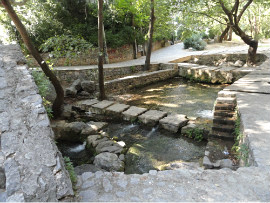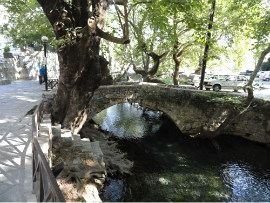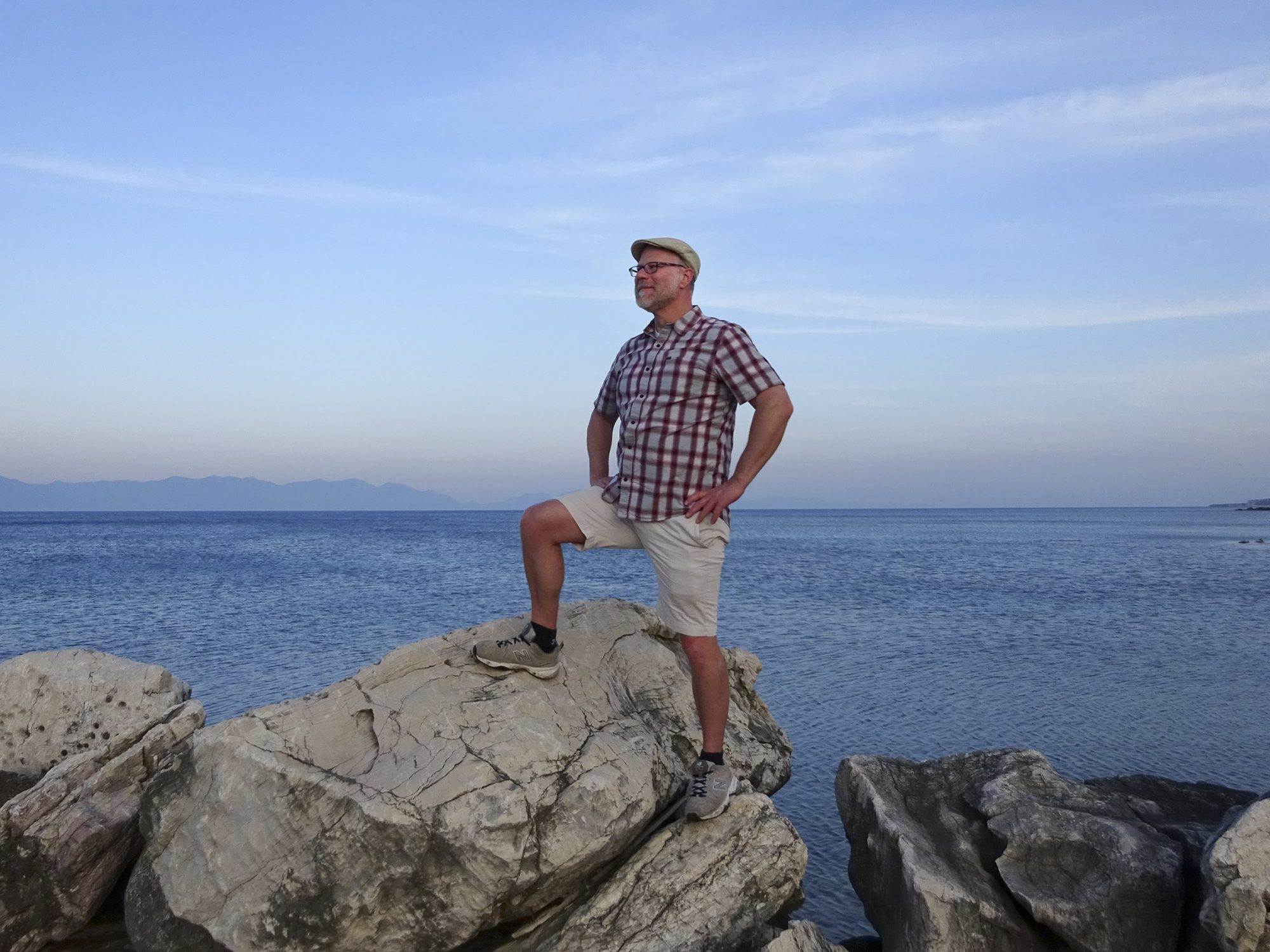I really do feel like a metrosexual Ganymede, swept away by Zeus to urban Athens, although instead of taking the form of an eagle, he whisked me here via airplane, then transformed himself into my Stavros and made me his cup-bearing catamite. (Stavros, despite looking older than me—or I like to think so—is actually 6 years my junior, so we’ll stick with this vision of Olympian pederasty. And hopefully eternal youth and immortality.)
 |
 |
 |
 |
Last weekend we took a day trip to Delphi, stopping first in Livadeia, a quaint little town perched at the base of a medieval castle. The spring-fed Herkyna River spills down from the hillside and cuts through town under a canopy of trees, providing a cool respite from the summer heat. The cathedral here houses a head of St. George. The use of “a” makes me wonder how many heads of St. George there are out there. Walking along the cool river bank, we heard the sound of plain chant coming from the cathedral, calming in the dappled shade.
 |
 |
The monastery of Hosios Loukas is picturesquely situated on the side of Mount Helicon, founded in the 10th century by the hermit Venerable (Hosios) St. Luke (Loukas). His remains are still there, in a glass sarcophagus sort of wedged between the original 10th century structure and the later 11th century church, his bony hand beckoning. Supposedly his remains exuded some sort of healing perfumed gas, and ailing pilgrims were encouraged to sleep by the side of the tomb in order to get a whiff of the miraculous vapors. The buildings are amazing works of Byzantine architecture, once lavishly decorated with mosaics and murals. Little remains of the original decorative elements, but the structures themselves are so beautiful, as are the few remaining monks.
 |
 |
 |
 |
 |
 |
Delphi is pretty spectacular, built in terraces along the side of Mount Parnassus, thought by ancient Greeks to be the earth’s naval. Apollo, as an infant, and supposedly with his first arrow, slew the serpent Pytho. The serpent’s body was tossed into a fissure in the earth and the vapors emanating from his decomposing body put the Oracle, seated on a tripod over the opening, into an intoxicated trance. It was in this state that she raved, her ravings then translated by the priests of the temple into elegant hexameter. I was unable to consult with the Oracle, as emperor Theodosius I closed down the operation sometime in 395 AD.
 |
 |
 |
 |
 |
 |
 |
 |
After Delphi we drove along the coast and took a little dip in the waters near the town of Galaxidhi. Prior to 1890, Galaxidhi was one of Greece’s major harbors, but as with so many of these little coastal areas I’ve been to, shipowners failed to accept and convert to steam power, so the town became another quaint tourist destination.
 |
|
 |
 |
